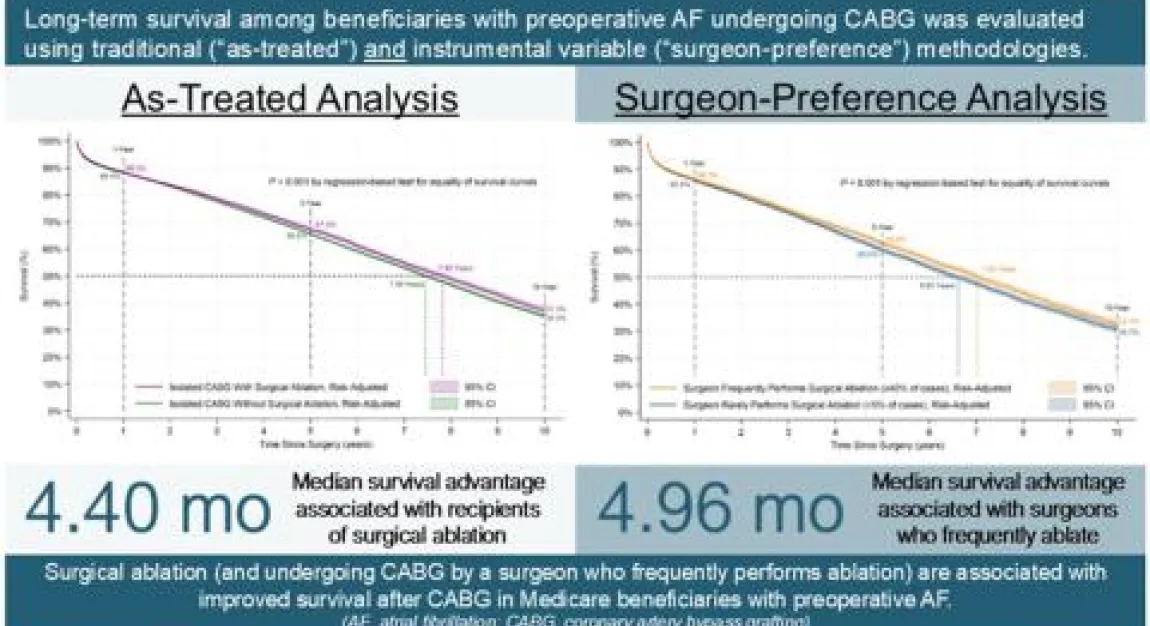A new study published in The Annals of Thoracic Surgery reinforces a powerful message for cardiothoracic surgeons: surgical ablation during coronary artery bypass grafting (CABG) can improve long-term survival in patients with pre-existing atrial fibrillation (AF), yet it remains underused. Here are three essential takeaways from the findings.
1. Surgical Ablation Extends Survival, But It's Rarely Used
Researchers analyzed data from more than 87,000 Medicare patients with AF who underwent isolated CABG between 2008 and 2019. Despite guidelines recommending the procedure:
- Only 22% received concomitant surgical ablation, despite an increase in ablation use over time.
- By 2019, two years after a Class I recommendation from The Society of Thoracic Surgeons, ablation rates were still just 27%.
Yet the survival benefit is clear:
- Patients who received ablation lived 4.4 months longer on average than those who didn’t (7.82 vs. 7.46 years).
- The benefit was even more pronounced among patients treated by surgeons who frequently performed ablation, with a nearly five-month survival advantage.
2. The Survival Benefit Manifests Over Time
One of the most compelling insights from the study is that the effects of ablation appear years after surgery.
“We hypothesize this is because ablation leads to a decreased incidence of tachycardia-related heart failure,” explained lead author Justin Schaffer, MD, from Baylor Scott & White, The Heart Hospital.
While surgical ablation might not deliver immediate results, its impact on reducing heart failure may contribute significantly to improved long-term survival.
3. Rigorous Methods Confirm Results, Guideline Adherence Still Lags
To address potential bias (i.e., that healthier patients may be more likely to receive ablation), researchers used two robust statistical approaches:
- Propensity score weighting to account for measured differences between patients.
- Surgeon-preference analysis, which mimics a randomized trial by comparing outcomes based on surgeon practice patterns.
The fact that both methods delivered consistent findings strengthens the argument for ablation’s survival benefit and raises questions about why more surgeons aren’t following guidelines.
“These data underscore the importance of guideline adherence,” said coauthor John Squiers, MD. “Hopefully, they will lead to a reevaluation of surgical decision-making for patients with AF.”
Read the full study: “Association of Surgical Ablation During Coronary Artery Bypass Grafting with Survival in Patients with Preexisting Atrial Fibrillation” in The Annals of Thoracic Surgery.
